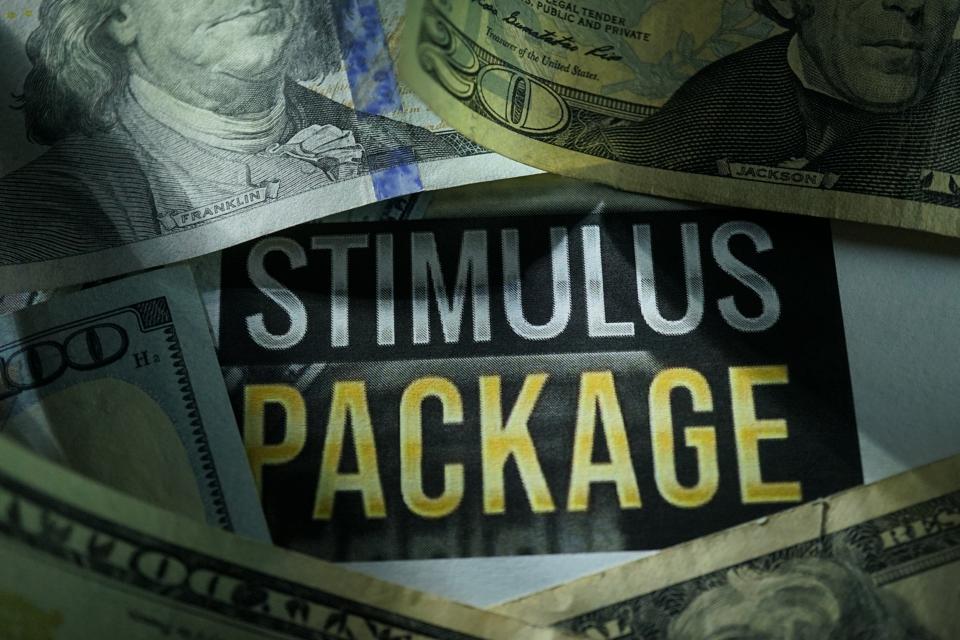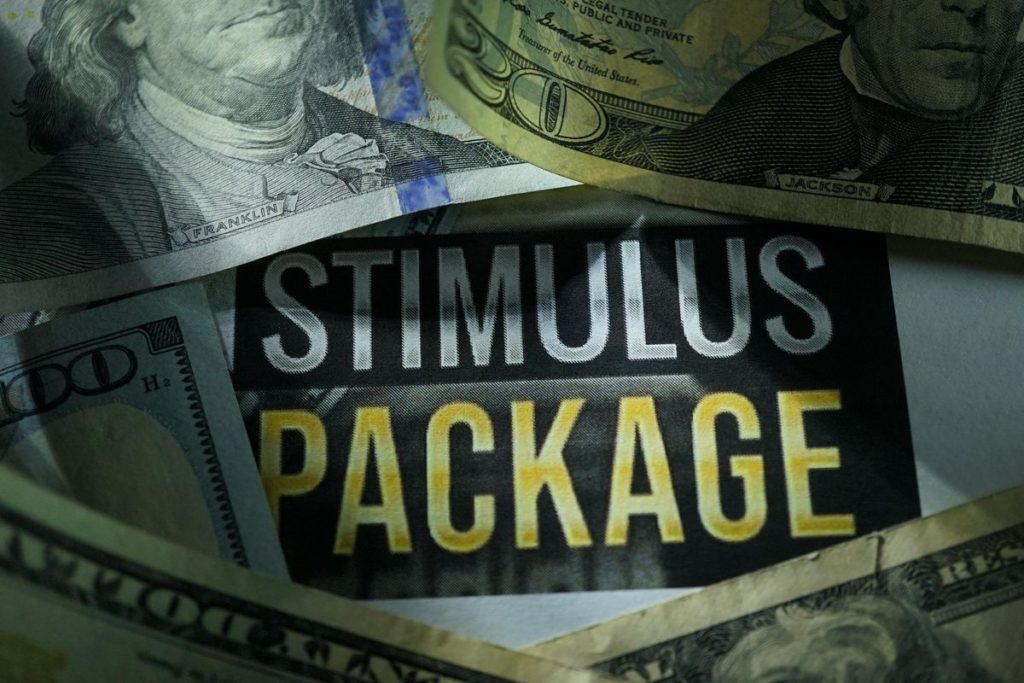
What would happen if all stimulus checks were spent on bitcoin? Kraken's Dan Held and programmer … [+]
Getty
As the United States (U.S.) economy gets back into motion after months of Covid-19 prevention measures, many citizens have likely already received money from the government in the form of stimulus checks or deposits. Although many folks may have already spent their cash allotments from Uncle Sam, what would happen if everyone put their stimulus money toward bitcoin (BTC)?
“If every stimulus check was used to buy bitcoin, we'd see bitcoin's market cap exceed $2 trillion ($100,000 per coin),” director of business development for Kraken digital asset exchange, Dan Held, told me via email correspondence on May 12.
[Ed note: Investing in cryptocoins or tokens is highly speculative and the market is largely unregulated. Anyone considering it should be prepared to lose their entire investment.]
Leading to those calculations, as of the time of comment, Held noted bitcoin touted a market cap of $160 billion, while the total stimulus amount allocated for citizens totalled $300 billion. That means the total amount allocated for stimulus payments nearly doubles all the speculative money invested in bitcoin at the time of his comment. Bitcoin’s current press time market cap sits just shy of $174 billion, according to CoinMarketCap data.
Investing in a speculative and volatile asset such as bitcoin, however, may not be peoples’ first instinct, given heightened unemployment numbers in recent months. People often flock to cash or other stable assets during uncertainty. Additionally, experts said citizens may want to prioritize stimulus check spending on necessities as needed, NBC News reported back in March.
Covid-19 prevention measures took flight in mid-March, causing businesses closures across the U.S. while state governments urged folks to stay home. In an effort to help the economy, President Trump signed a $2 trillion stimulus package, which included checks or direct deposits sent out to Americans.
The value of each person’s check varied based on a number of factors, including marriage status, children and annual salary. Some people received $1,200 each. In short, the government set aside approximately $300 billion for these payments, a CNBC article detailed.
Assuming all that money was dispersed, hypothetically, if each citizen who received a payout put that money directly toward buying bitcoin, the asset’s limited supply would cause a spike in its price, according to Held.
“Not all current owners of bitcoin are willing to sell (and many have been lost) which means that the $300 billion in stimulus checks would be chasing a very small number of sellers, making the price appreciate exponentially,” he said.
Bitcoin has a limited maximum supply of 21 million coins. Its current circulating supply at press time sits at approximately 18,403,037 BTC, based on CoinMarketCap data. As people mine new coins, that supply will ultimately reach 21 million. As a global asset, 21 million BTC is a relatively small supply.
Additionally, analysis indicates many BTC have been lost over the last 11 years since the asset’s inception, possibly due to early participants misplacing their holdings while the asset was relatively worthless, making the functional supply even smaller.
Would there be any downside if everyone spent their stimulus money on BTC? Held said he does not think so.
“Bitcoin brings about a new financial system not controlled by governments, which enables people’s savings to be free from censorship and hard to seize,” Held told me on May 19. “Every U.S. citizen buying bitcoin would be an incredible leap forward into a new gold standard, the ‘bitcoin standard.'”
Bitcoin developer, and author of the book Programming Bitcoin, Jimmy Song, also said bitcoin’s price would rally if everyone put their stimulus money toward the asset. “Price would go up,” Song told me in a May 18 email in response to the question.
The Internal Revenue Service (IRS) deployed approximately $267 billion to citizens in stimulus money as of June 3, the Perter G. Peterson Foundation detailed. The likelihood of citizens spending all that money on bitcoin, or that they have already spent those funds solely on bitcoin, remains low, although Held noted Kraken saw an uptick in numbers after Covid-19 took center stage.
“At Kraken, we've seen sign ups jump significantly during Covid-19 as investors are increasingly seeking to buy bitcoin, a digital gold,” Held said on May 12. Other outfits also showed upticks after the pandemic surfaced, including digital money and asset platform Uphold.
Crypto asset companies are not the only ones looking back on increased activity during that time period, however. Digital fund transfer platform MoneyGram saw higher May numbers compared to 2019, the outfit said in a June statement. Financial service platform Robinhood also posted a volume spike after Covid-19 changed daily life.
Disclaimer: I actively trade cryptocurrencies, as well as hold a small amount of BTC, ETH, LTC, XMR, NEO, ZEC, BEAM, BCH, DASH, LINK, XTZ and various insignificant other altcoin positions.


